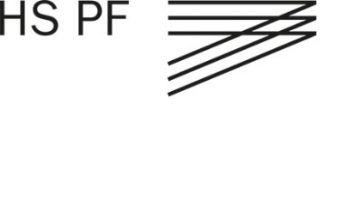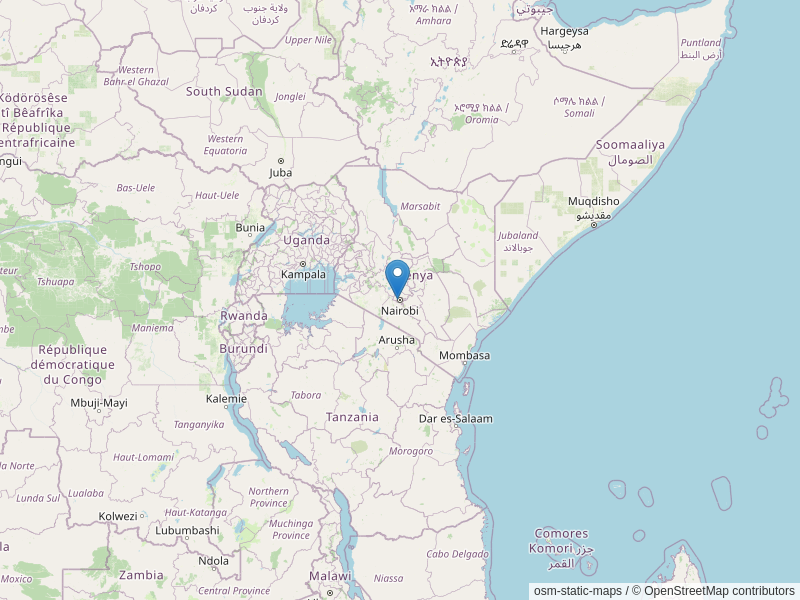Prof. Mike Kuria, CEO Commission for University Education (CUE): "CUE will therefore try to be a partner for quality and not an inspector of universities"
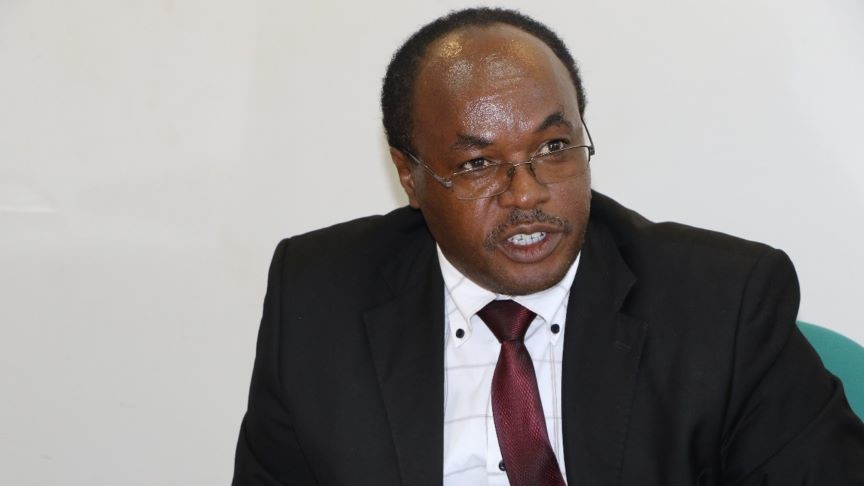
The Inter-University Council for East Africa (IUCEA) and the DAAD can look back on many years of cooperation. Since 2005, the DAAD and HRK have been working with the IUCEA through the DIES program to help universities and national governments set up structures to make sure the quality of their work is good.
As a result of this cooperation, the East African Community countries have become a good example of how a regional quality assurance system could be set up.
In this Portrait of the Month, we talk to Prof. Mike Kuria, the Commission Secretary of the Commission for University Education since October last year and until recently a partner in the Inter-University Council for East Africa (IUCEA), who has accompanied the developments and served the DAAD as a competent expert for many years.
Please introduce yourself.
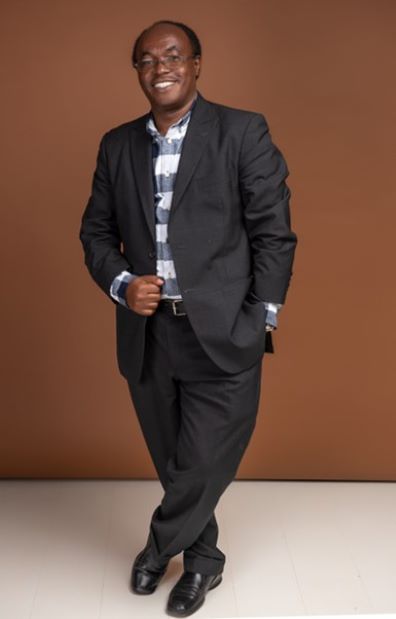
© Mike Kuria
I, Mike Kuria was born and raised on the mountain slopes of Aberdares in what is now Murangá County, where I completed my primary school years. I then moved to Nyeri District where I completed my O-Levels and A-Levels at Kagumo High School. I was a scout and a theater actor, and I even trained as a police cadet at Kiganjo Police College. I then went on to study for a Bachelor of Education at Moi University with English and Literature as my teaching subjects. I taught for a short time in Nakuru before returning to Moi University on a scholarship to pursue a Master of Philosophy in Literature. In 1993, I joined Daystar University as a lecturer in English and had the opportunity to be part of the team that worked on the accreditation of the university by the then Commission for Higher Education (CHE). Three years later, in 1997, I went to the University of Leeds in the United Kingdom to pursue a doctorate. Upon my return in 2004, I was appointed the first Director of the Center for Quality Assurance. In 2016, I was appointed Deputy Executive Secretary of the Inter-University Council for East Africa, where I worked until 2022. Since October 2022, I have been serving as the CEO of the Commission for Higher Education in Kenya (CUE).
You have a long association with the DAAD. What inspired you to join the first cohort training of the E.A. Quality Assurance Directors Training in Oldenburg, Germany, and as DAAD’s coordinating expert for the IUCEA-DAAD-HRK cooperation on quality assurance in East African higher education? What did your duties entail as a coordinating expert?
I did not plan it. I was sent by my then – Vice-Chancellor at Daystar University, Prof. Godfrey Nguru, to represent him in a meeting. I went there with only one intention: to take notes for my VC, write a report, and then return to my pursuit of a career in literature and the creative arts. This meeting was being organized by DAAD, the German Rectors Conference (HRK), the National Commissions and Councils for Higher Education in Kenya, Uganda, and Tanzania, and also included vice-chancellors of participating universities in the region. Burundi and Rwanda joined the East African Community later and became part of the initiative. The objective of the meeting was to see how a regional quality assurance system for higher education in the EAC could be introduced. I listened and took copious notes to deliver a good report for my VC. Somewhere in the middle, they realized no one was taking minutes of the meeting. Then someone turned to me and said, “but we have been seeing you type; what are you typing?” I told them I was taking notes for my VC, and they asked if I could share them. I did. They liked them and asked me to attend the next meeting in Bonn, Germany. My vice chancellor then appointed me as the Quality Assurance Coordinator at Daystar University. It was in that capacity that I found myself in Germany as one of the first cohorts of quality assurance directors trained in Oldenburg, Germany.
The Bologna process, its challenges, and the transformation of the European higher education landscape were introduced to us. The more I learned, the more it fascinated me. I was invited to be one of the trainers of trainers in the following cohort as part of the IUCEA-DAAD-HRK initiative. The rest, as they say, is history.
By the third cohort, the then Director of DAAD Nairobi, Christoph Hansert, an extremely visionary man, had invited me to help coordinate the IUCEA-DAAD-HRK Initiative on behalf of DAAD, Nairobi. My work involved coordinating the activities of the initiative in conjunction with IUCEA. These included training more QA Directors and peer reviewers for academic programmes, developing QA tools, including The RoadMap to Quality: A Handbook for Quality Assurance in Higher Education; and subject benchmarks in diverse fields such as business studies, information technology, education, medicine, engineering, and agriculture, among others, benchmarked against international best practices.
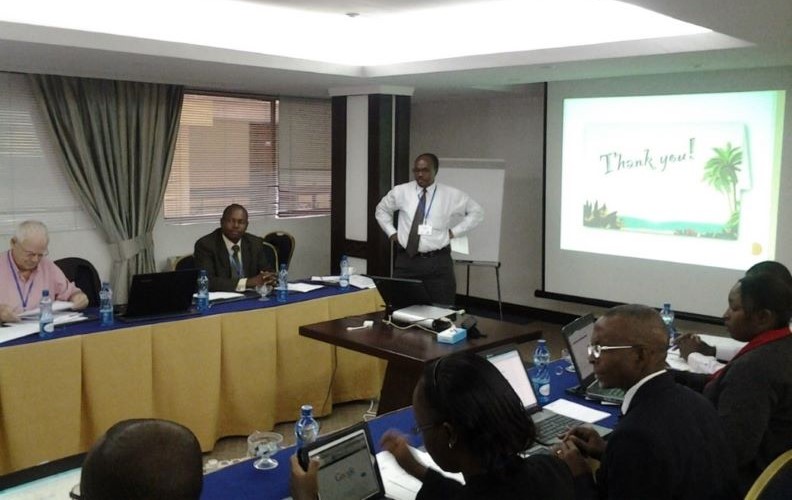
© Mike Kuria
You were part of the team that founded the East African Quality Assurance Network (EAQAN), and you began as its Secretary General. Please tell us more about this. What events led to the establishment of the network?
The idea of the East African Higher Education Quality Assurance Network (EAQAN) arose out of a professional need. It was also informed by practice elsewhere. The European Association for Quality Assurance in Higher Education (ENQA) and the ASEAN Quality Assurance Network (AQAN) were some of the networks against which we benchmarked. We were academics with specializations in diverse fields of study, but none of us was really a QA expert in higher education. We needed a forum to share ideas and experiences as we tried to drive what was a relatively new concept in higher education in the region. Universities were used to assuring quality through traditional structures such as the senate, external examination, dean’s committees, academic committees, or boards, but few, if any, had formal structures dedicated to a professional focus on quality assurance. There were no quality assurance offices in place, no budgets for QA, and no practice of carrying out regular practices such as tracer studies, alumni involvement, or engagement with industry in the development or review of academic programmes. In our first cohort of trainees, we had about 23 institutions, and only the University of Dar es Salaam had something close to a quality assurance unit or directorate. The rest of us had to establish them for the first time in our various institutions. We needed a support system. We, therefore, decided to form EAQAN. A few of us worked on the constitution, pursued registration, and eventually, we launched it in Entebbe, Uganda, in 2012. Prof. Michael Mawa was elected president, and I was elected secretary-general. This network now holds an annual event where topical issues in quality assurance in higher education are discussed and strategies put in place to address them at a regional level. I am happy to say that some of the tools and systems we developed formed the basis on which, in May 2017, the Heads of State of the EAC Countries declared the East African Community a Common Higher Education Area.
You served as Deputy Executive Secretary of the Inter-University Council for East Africa (IUCEA), whose mandate includes the quality of higher education in the East African Community (EAC). Please tell us more about this position and your work at IUCEA. What are some of the QA efforts with DAAD that you led?
In 2016, I interviewed for the position of Deputy Executive Secretary at the Inter-University Council for East Africa (IUCEA). I served there till October 2022, when I was offered the chance to serve as the Commission Secretary for the Commission for University Education in Kenya. My time at IUCEA was very exciting because I was following up and building on things we had already started in the context of the IUCEA/DAAD collaboration. If you read the declaration of EAC as a Common Higher Education Area, for example, you will note that the Heads of State took cognizance of the fact that among the support pillars of the Regional Quality Assurance Framework in place were The Roadmap to Quality: A Handbook for Quality Assurance in Higher Education, subject benchmarks for academic programmes, and the existence of EAQAN as an organization that “promotes the development of a quality culture in East Africa.” During my period, we engaged in scaling up the IUCEA-DAAD collaboration. It was during this time that the benchmarks in agriculture, medicine, engineering, sports science, health informatics, and others were completed. We also started efforts to professionalize postgraduate supervision, and under the IUCEA/DAAD collaboration, we developed the Standards and Guidelines for Postgraduate Studies in East Africa, which are now freely available on the IUCEA website. We continued with capacity building for universities by training more QA officers, holding dialogue sessions between academia and industry, holding workshops for postgraduate supervisors, and hosting EAQAN annual forums dedicated to quality assurance in higher education. The last one was held in Dar es Salaam, Tanzania, in September 2022 under the theme “Promoting Sustainable Development through Quality Assurance of Higher Education.”
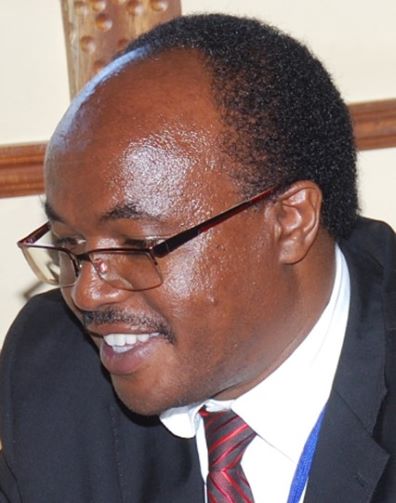
© Mike Kuria
Congratulations on becoming the CEO of the Commission for University Education! The Commission was established to create better conditions for the promotion of quality higher education in Kenya, which includes, among other things, the regulation and accreditation of universities and their academic programs. What are your plans for the higher education sector in Kenya?
I plan to build on the great work of my predecessors. My ambition is to make Kenya the preferred destination for anyone interested in studying in East Africa, whether from within or outside the region. The only way to achieve that is to raise and/or maintain the quality of education to international standards. Universities will be responsible for the quality, while the Commission, through regulation and accreditation, will provide assurance to all stakeholders. CUE will therefore seek to be a partner for quality rather than an inspector of universities. We need strong internal quality assurance systems within each institution, and all internal stakeholders need to jealously guard the integrity of their system. We intend to promote prompt data-driven decision-making, strong industry–academia linkages, and the development of 21st-century skills. If we work together, we can do it.
Thank you very much!
We wish you all the best in your activities and look forward to furthering our cooperation in the future.




